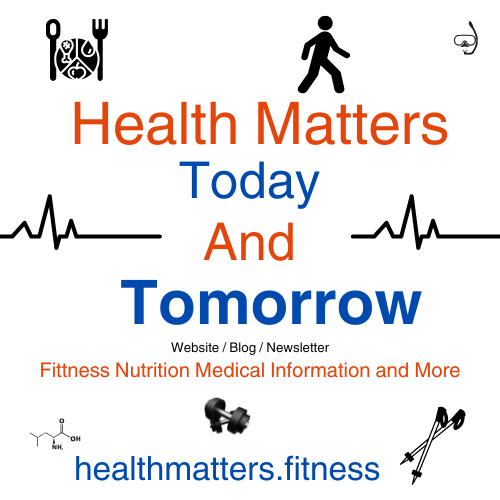
A year ago, on my birthday, I launched the Health Matters website and blog. My goal has been to provide insights on fitness, nutrition, medical information, and a variety of other topics. I hope you have found these articles both useful and engaging.
Throughout my career as a primary care provider I have placed great emphasis on communicating health information to my patients as well as the general public. A hope I have for myself is that by thinking through these topics and organizing my thoughts into articles that this process will help me in my efforts to become a better communicator and therefore a better primary care provider.
If this is your first time reading this blog I encourage you to go back and read my previous articles. I have put together a list of these 26 articles grouped by theme. For example I have an ongoing series on protein nutrition. There are many different opinions and perspectives on protein nutrition. To help readers navigate these differing views, I have introduced some basic concepts. A good foundation will allow us to be better equipped to explore some of the issues that are being debated today and help you and I make decisions.
Over the years, I have developed a strong passion for fitness. I work out most days and approach my fitness efforts deliberately with intention. My workouts have evolved significantly over time, influenced by my learning, aging body, goals, and personal preferences.
It has been proclaimed that “Exercise may be the single most potent medical intervention ever known.” Fitness is not only a personal passion but also a professional passion. I am striving to help my patients take advantage of the tremendous medical benefits of exercise and help them enjoy life to its fullest. A significant motivation behind starting this website was to further these efforts.
I have been working my way through a series of articles outlining the ways our bodies respond to exercise stimuli. I have introduced concepts of long endurance and resistance training. I will be continuing on with discussions of higher intensity exercise and other aspects of exercise. Click here to get the introduction to this series titled “Training 4 Life : 9 Adaptations”.
The Health Matters website/blog will keep exploring other health topics, including infectious diseases. To keep things lively, I will also include more content on recreation, music, history, travel, and other areas of interest. I welcome suggestions for topics and opportunities for collaboration.
I will be adding in a pinch of this and dash of that to help spice up this blog. A year ago in honor of George Washington who was also born on February 22nd, I shared with everyone some of his thoughts on partisanship and political parties. Today, I will again pay tribute to Mr. Washington by briefly discussing the illness that may have claimed his life.
George Washington holds a significant place in our shared history. When presidential scholars and historians rank U.S. Presidents, George Washington lands in the top 3 ( A , B , C ).
George Washington passed away at the age of 67. His final 36 hours are well documented. While researching this topic, I found some discrepancies in the details of his death, and the cause has been debated over time; however, it is most likely that he suffered from bacterial epiglottitis. This illness may have been exacerbated by the treatments he received, which included bloodletting.
Acute bacterial epiglottitis (aka supraglottitis) is most notoriously caused by the bacteria Haemophilus influenzae type b. To be clear this is not the common influenza that is caused by a virus – it just so happened the bacteria was discovered during an influenza outbreak and was incorrectly thought to be the cause of influenza – thus the misleading name. Haemophilus influenzae type b or Hib can be deadly in all ages. Thankfully we do have a vaccine to protect us against the severe consequences of being infected with this bacteria.
Before the establishment of routine vaccination, thousands of individuals in the United States experienced serious infections like meningitis and epiglottitis each year. Approximately 3-6% of those with meningitis did not survive, and 20 to 30 percent of survivors faced permanent complications, including hearing loss, cognitive impairment, and seizure disorders. In regions of the world where Hib vaccination is not widespread, Hib remains a leading cause of meningitis and epiglottitis in children and pneumonia in adults.
To learn more about George Washington’s illness and the treatments he received check out this video.
Thanks for listening and please share.
If you want to be on an email list to get these articles please send a request to healthmattersinformaton@gmail.com or click on the subscription button on the website. Note on the homepage of the website, to see all posts click the “Post” button in the upper right of the screen (the “Post” button just below the graphics is not functioning).
Click here to see a list of the posts grouped by theme.
Please read Health Matters Disclaimers and Context
Pingback: Staying in the Game: Protection Against Measles – Health Matters